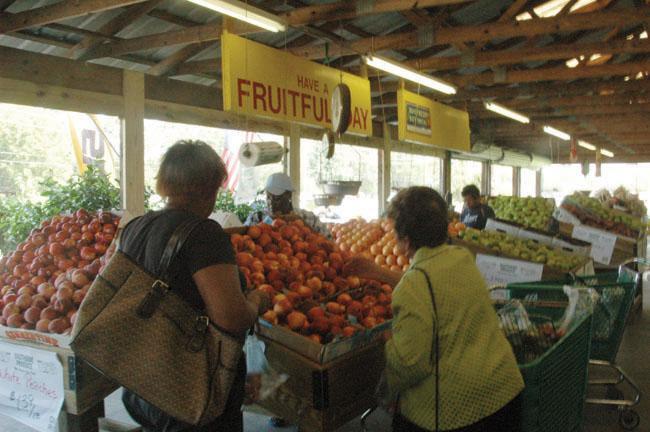In the wake of hurricanes Gustav and Ike, Louisiana farmers are truly feeling the economic pinch.The first estimate of immediate damage to Louisiana crops was $372 million. Now, AgCenter economist Kurt Guidry said Louisiana Agriculture and Forestry Department has assessed $540 million in revenue losses. And that number is only a snapshot of the real economic impact on Louisiana agriculture.”That does not include infrastructure losses, increases in production costs and potential multi-year impacts [on crop production],” Guidry said.Local produce markets are also feeling the economic effects of Gustav and Ike. Andy Pizzolato, owner of Southside Produce, said the storm will cause prices to increase, with about half of Louisiana citrus crops seriously damaged. Louisiana grown tomato plants fared even worse.”The tomato crop was destroyed,” Pizzolato said.Gustav hit at a time when many commodities were ready to be harvested. Ronnie Levy, AgCenter assistant professor and state soybean specialist, said the soybean crop was one such unfortunate plant. “The hurricane couldn’t have come at a worse time,” Levy said. Guidry said the full extent of the damage to these crops will depend on the weather in the next few weeks. More rain will yield more losses, but many of the soybeans have already soaked up enough moisture to affect their quality, according to Levy. This alone is enough to cause economic harm to all industries associated with the commodity — from producers and agribusinesses to vegetable oil manufacturers.Hurricane Ike did not help the situation, bringing even more rains and compiling the agricultural losses further. “Any time the harvest is delayed, there are revenue losses,” Guidry said. Guidry said the commodities hardest hit were cotton and sweet potatoes, which, because of the extensive rains during August and from Gustav, have been reduced to 50 percent of their pre-storm value. Pecans also suffered drastically as a result of the winds, Guidry said.Dennis Burns, AgCenter agent for Tensas Parish, said his region was experiencing a drought until August, when 16 inches of rain fell. Then Gustav came, dumping 11 to 15 more inches in the area during a 36-hour period.”The farmers are going to have to spend a lot of money to rework the fields,” Burns said.—–
Contact Charles Schully at cschully@lsureveille.com
Farmers, sellers feeling the pinch
September 17, 2008
Louisiana tomato crops were damaged during Hurricane Gustav causing places like Southside Produce to sell Tennessee Mountain Grown Tomatoes.





